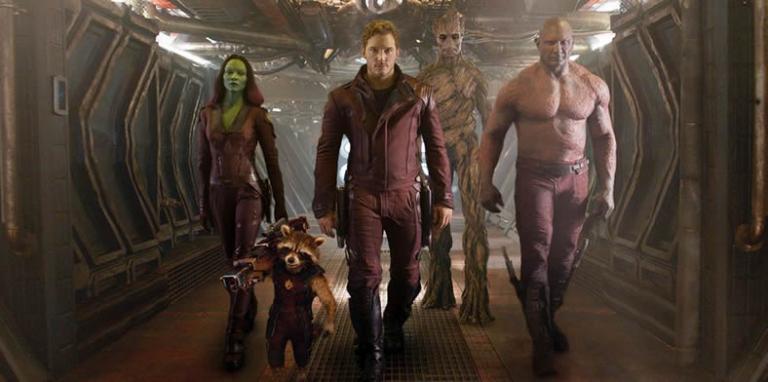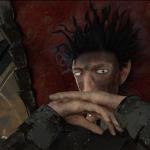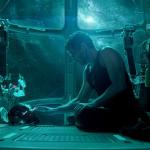
10. Your parents aren’t perfect, but they are important. I’ve written before about how important fathers are to the dynamics of the MCU: Nebula and Gamora’s relationship with daddy Thanos is far from the only, or even best, example. And we see—perhaps through Tony Stark especially—how those imperfect relationships can drive a person in healthy and unhealthy ways. T’Challa, too, must come to terms with the legacy of his revered father in Black Panther. But even when relationships are complex and prickly, we still see how much yearning our heroes have for approval and connection and love from their parents. And in Endgame, some of those relationships make for some of the movie’s most resonant moments.
11. Forget saving the world: We’ll do anything for our kids. The Ant-Man movies tend to be lighter entries in the MCU, but there’s nothing light about Scott Lang’s love for his daughter—or for the lengths he’ll go to save and care for her. He’s not the only doting daddy we meet. One of the most beautiful respites in Avengers: Age of Ultron was when Hawkeye took the team back to his farmhouse to meet the fam. In Black Panther, we see how much mother Ramonda loves her little boy, T’Challa. A mother’s or father’s love for her or his children propels the MCU over and over. Perhaps that’s why when, in Infinity War we see Thanos sacrifice his own daughter—the thing he loves most in the world—that it feels so shocking.
12. Sometimes, you make your own family. Not everyone in the MCU is lucky enough to have a loving father or mother or their own children. And so—because family is so important to someone’s health and well-being—they find and make their own. Natasha says as much in Endgame: “I used to have nothing. And then I got this,” she says, referring to the Avengers. “And even though they’re gone, I’m still trying to be better.” The Guardians of the Galaxy movies are both about family, really: None of the heroes have families (or, at least, good families), so they make their own. Groot knew it near the end of Guardians of the Galaxy. Right before he sacrifices himself for his friends, he literally wraps them in his tendrils in a massive, wooden hug. “We are Groot,” he says. And while that might not sound that emotional for folks who haven’t seen the film, those of us who have might argue it’s one of the most powerful, beautiful moments in any Marvel movie.
13. Look closely. Fun fact: In Doctor Strange, the doctor’s near-eternal clash with Dormammu takes place on … Groundhog Day. And when a fan pointed it out on Twitter last year, director Scott Derrickson immediately chimed in. “I’ve waited two years for somebody to notice this,” he said. Any MCU fan knows that these movies are just saturated with Easter eggs—little treasures that bring a we bit more joy to those in the know (or those with a lot of time to watch the film frame by frame). And while not all of us have that sort of time to look for obscure references for, say, Arrested Development references in the MCU, it’s good to remember that the joys in our own lives are often in the little moments, not the big ones. We should always be mindful of noticing and embracing those moments when they come.
14. Good intentions don’t mean diddly. The best villains in the MCU often think that they’re the heroes of the story. Thanos is a good example: He thinks overpopulation is the real universal villain, and he feels he’s the only guy with the stomach to take it on. We see that same “the ends justify the means” philosophy in Age of Ultron when Tony Stark (with an assist from Bruce Banner) creates Ultron. The AI isn’t meant to be a supervillain, but a global protector. But Ultron—without a soul or conscience to tell him otherwise—jumps to the conclusion that to protect the globe, he’ll have to eliminate humankind as we know it, beginning with the Avengers themselves. In our own lives, se sometimes believe that we have to do questionable things en route to our own happy endings. Deep down, we know better, and the MCU knows better, too.
15. Every decision has consequences. Most MCU movies end, obviously, on a high note. Good guys win. The world is saved. We all cheer and go home. But when you look at the broader Marvel universe, it stresses that, sometimes, even our victories sow the seeds for the next conflict. Sure, the Avengers saved the planet from catastrophe in Age of Ultron, but the collateral damage led to the breech in Captain America: Civil War. T’Chaka, T’Challa’s father in Black Panther, thought he was doing the right thing by killing his traitorous brother and leaving his nephew behind. But that act birthed a supervillain that almost brought down his kingdom. This is what history teaches us, too: There’s no real “happily ever after” in this life. Only the next. And every choice we make—even if it’s absolutely the right choice—comes with a price.













